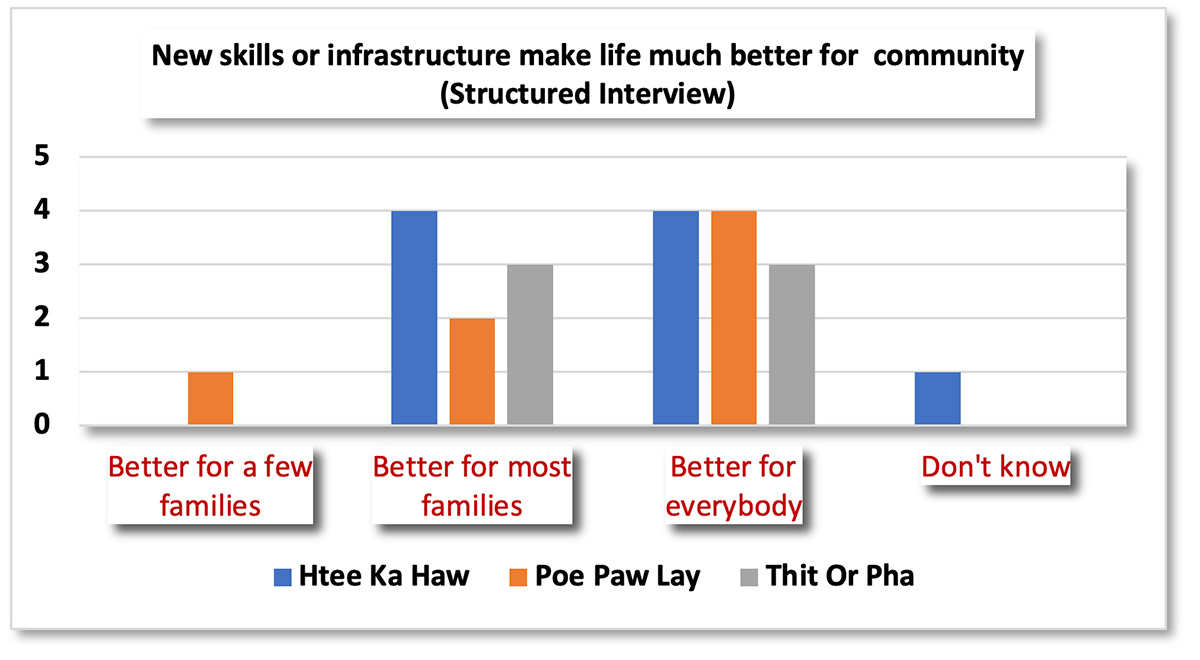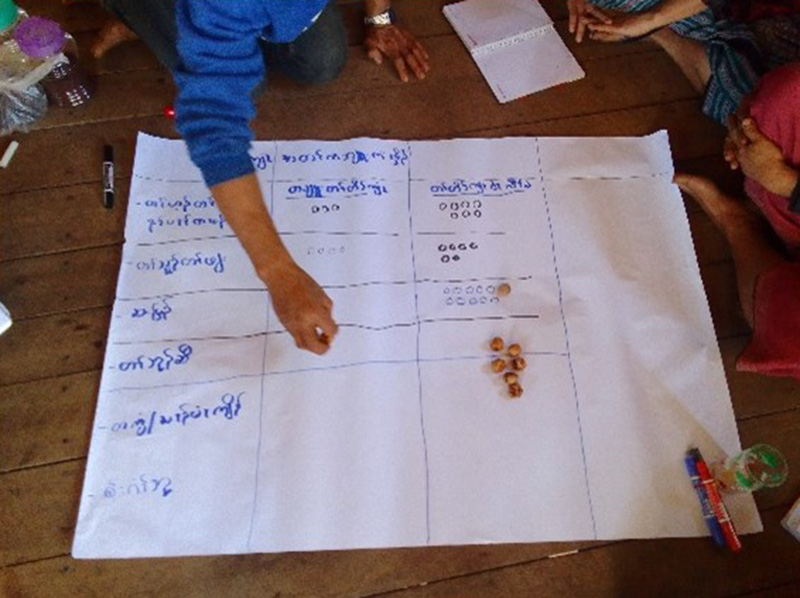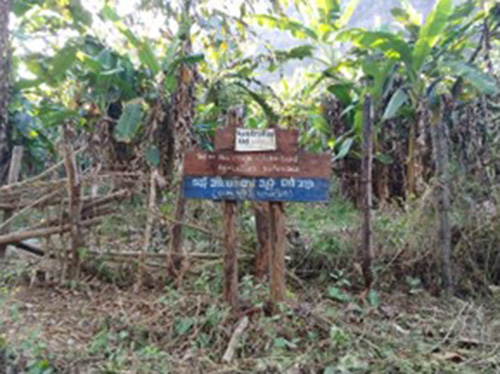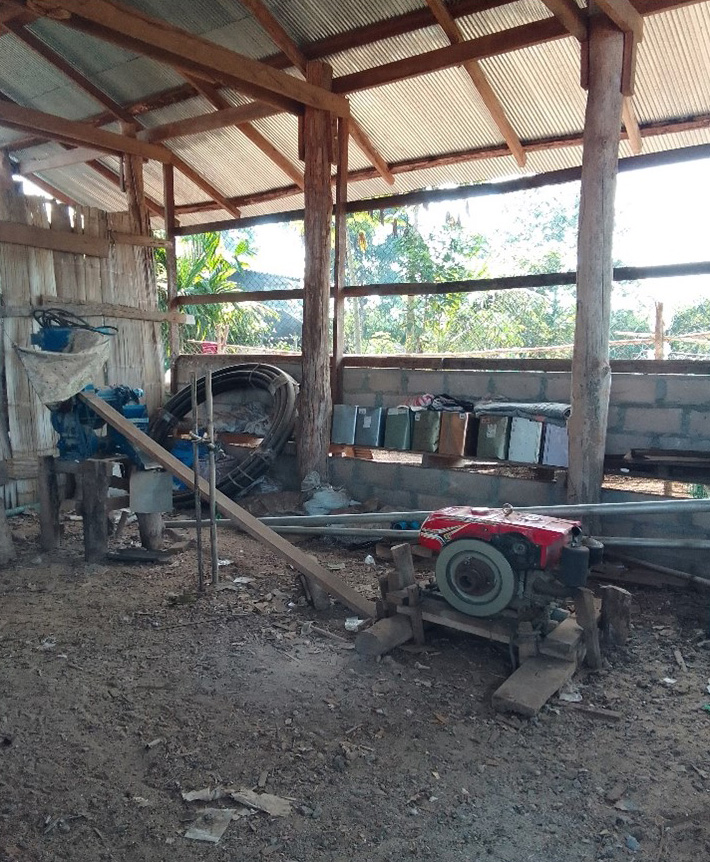Our Effectiveness
Partner: Church of the Province of Myanmar (CPM)
Project name: Myanmar Sustainable Agriculture
Project aim: To develop community capacity and resilience by enhancing agricultural outputs, improving access to water, and increasing awareness of hygiene and environmental sustainability.
Period evaluated: July 2017 – June 2022
Date of evaluation: Feb – Mar 2023
The evaluation of CPM’s Sustainable Agriculture Project in Myanmar (delayed because of current challenges in that country) found that the project’s key impacts were to increase agricultural productivity and increase community organisation. The projects impacts were achieved by running some activities for “whole of village” and some activities for members of a village development committee (VDC) that was established in each village.
VDC members appreciated being trained in leadership, roles and responsibilities of committees, financial management, and identifying village needs. The project assisted each VDC to protect natural water sources and establish a community farm that modelled the use of organic fertiliser. The project also provided a sesame oil press and rice mill to two of the VDCs. Even though the project had finished six months prior to the evaluator’s visit to the villages, he found that, “The VDCs continue to manage and maintain activities including community collective farms, a mini rice mill, an oil press machine, and [are] safeguarding water supplies from pollution and deforestation.”
Awareness sessions were run for “whole of village” on topics such as Gender Equality, Child Protection, Parental Awareness, Disability Rights, Environmental Conservation and Disaster Risk Reduction. The evaluator observed that, “After receiving these trainings, involvement of women in the community affairs were increased and for instance, at least three women … participated in the VDC …some of them even playing a leading role. Incident rates of domestic violence with physical abuse towards women were also decreased in the target communities.”
Finally, “whole of village” trainings were provided on making natural fertilizer, methods for soil revitalization and plant protection. The evaluator observed that the “Majority [of] farmers replicated the application of natural fertilizer in their paddy farms because the method was simple, easy to apply with very low cost.” From 22 people interviewed about the project impacts, nine said the project had improved life for most families. 11 more said the project had improved life for all families.

The evaluator also made several suggestions. One of these was for CPM to strengthen coordination with other organisations that are operating in the same area. Another suggestion was to follow up community-level trainings by providing a refresher training in a later year. The follow-up training would not only refresh people’s knowledge but also allow AID’s partner, CPM, to check whether community members faced any challenges in implementing their new skills in the field.

Obtaining feedback from community members during the evaluation process. © CPM. Used with permission.

A community farm in Thit Or Pha village. © CPM. Used with permission.

The new mini rice mill in Poe Paw Lay village. © CPM. Used with permission.
Success Stories
“In the past, the yield rate of my paddy farm was only 30 baskets maximum but after I apply natural fertilizer, I noticed the growth of the plants and the yield also remarkably increased to 90 baskets”.
Saw Htoo Say, a male farmer from Htee Ka Haw village
“When receiving funds to start chicken raising business in our village, priority was given to households headed by widows, families with disabilities and families with financial difficulties. This initiative has greatly benefited these households and their families.”
Naw Kyet, a women’s group leader from Poe Paw Lay village
“My paddy farm is about five acres, and in the past, the height of the paddy plant is about two feet, and the yield was 40 baskets to 50 baskets. After applying the natural fertilizer, the growth of the paddy plant reached around my chest and the yield also increased to 100 baskets. As benefit, we do not need to buy rice from others, and it was sufficient for all of my family with 11 members.”
Saw Winberd, a man from Htee Ka Haw village
AID would like to thank all our supporters who donated to and/or prayed for this project over the years. You can see the impact that has been made.
AID acknowledges the support of the Australian Government through the Australian NGO Cooperation Program (ANCP)